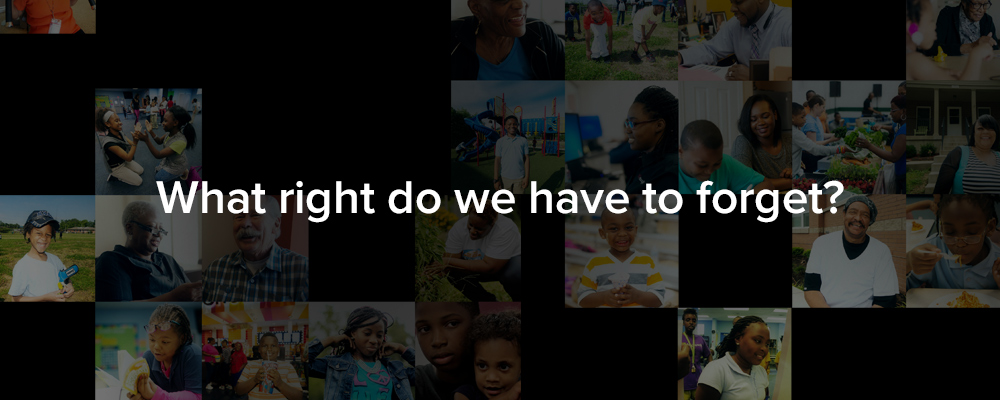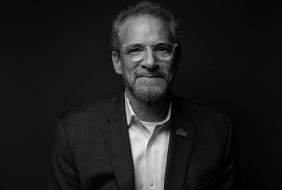I recently heard philosopher-artist Dario Robleto ask, “What right do we have to forget? What do we owe to each other’s memories?” These questions are taken from an essay of his titled If You Remember, I’ll Remember.
These two questions have stuck with me and compelled me to think about the families Beyond Housing serves each and every day. They remind me that when others are struggling with real pain and challenges greater than what most of us have ever had to endure, what right do we have to forget them? Do we not owe them our acknowledgement and a sincere effort to help?
The challenges and heartache that befall so many in communities like the 24:1 Community— whether during a global pandemic, economic downturn, or in the regular ongoing struggles of so many during normal, everyday life—have been met with half measures, empty rhetoric, and ultimately no progress from our regional and national leadership.
Robleto’s two questions also reminded me of people I have written about over the years in two other blog posts. They are emblematic of this point and, given the dates of their publication, also make the point of how so little has been done in the grand scheme of change since.
In February of 2016, I wrote a blog titled “They Have Names.” In it I listed all 300 names of the children in that year’s kindergarten class within the Normandy Schools Collaborative. My goal was to humanize them so that anyone reading would recognize that these 300 young, beautiful children “are real people, with real lives, real dreams, real struggles—just like you and me.” I wanted anyone reading “to know their names” because “they deserve your attention, your caring, and your understanding” and to make people realize “we can make a difference, we can change the arc of their lives, we can empower them to aspire to the highest heights, and we can simply let them know we care.”
Four years later, despite the inequities of opportunity and the severe challenges that many children in our underserved communities face, our region still does very little to support them. Beyond Housing and our supporters have invested as much as we can, but it is still woefully short of what is truly needed to ensure that these children’s lives, families, and neighborhoods are the best they can be.
What right do we have in forgetting about these children? What’s more, in forgetting their futures aren’t we damaging our own future as well?
If we truly supported these children and worked to improve the communities they grow up in, not only would the trajectory of their lives and communities be changed for the better, it would also go a long way in addressing the many negative, persistent issues that have plagued the entire St. Louis region—issues that directly stem from the high levels of poverty and extreme inequities and disparities that exist in St. Louis by zip code and color.
On December 28, 2018, I wrote another blog titled “Her Name was Aashya Quarles.” Aashya was a parent of a child in our after-school program and also volunteered at the program as well. She was murdered by her former boyfriend. Almost two years ago now, I wrote, “She deserves to be remembered. Her name, nor anyone senselessly murdered, should not simply be added to the list of those lost to gun violence in our community and forgotten. She leaves behind three children, the oldest only in 2nd grade. She was a mother, daughter, friend, volunteer extraordinaire, and had a light inside that burned brightly and shined on everyone she came into contact with.”
I went on to say, “How did we slip into the mind-numbing ambivalence of our self-inflicted, self-indulgent, fast-paced world of today where most of us never see the story of Aashya and the others as something we should care about? Societal ambivalence to the plight of our neighbors is by no means a new phenomenon. There is, however, this new way of remaining apart from ‘the others.’ We are easily distracted with so many superfluous things on our screens and other perceived priorities that we either easily ignore or throw our hands up to the systemic problems of our community. To paraphrase the great civil rights leader Vincent Harding, ‘Community is like any other living organism, it either grows or it dies.’”
Back to the two questions that Robleto asks, if this virus has reminded us of anything it should be that none of us, either as individuals or communities, is an island. We are all connected. It’s when we operate under the illusion that we are separate from each other that we create or perpetuate a lot of our world’s troubles—which invariably become our own.
We may have the right to forget our fellow St. Louisans, but we do so at our own peril. As I wrote in another blog post this year toward the beginning of the pandemic titled, “Can You Hear Rosa Yelling?,” “the reality is if we don’t pay attention to the world around us, it will invariably change into something that will impact our own existence.” Which is essentially why we do this work.
We also do this work because we owe it to other’s memories. We owe it to each year’s kindergarten class to make their communities better, safer places to live that provide them with the same quality of opportunities to succeed as others. We owe it to the memory of Aashya and others whose lives were cut short by violence to do everything we can to stop the cycle.
This means recognizing that transforming communities is not a simple task—it’s complex. It’s not just about doing something to improve housing or education or health or economic development. It’s about doing all of that and more.
This is why we’ve invested so heavily in creating an infrastructure of partner organizations to provide access to a comprehensive range of services and resources to help low-income families become financially stable. It also requires serving families holistically because needs are interdependent. For example, helping a parent earn a living wage might also require helping them address unmet health needs or childcare so they can work.
Because communities are living organisms where each individual part impacts the other, transforming communities requires everything from upgrading infrastructure like roads and sewers to building new housing, commercial and economic development, partnering with local government to improve services and the school board to improve education outcomes, and more.
We owe it to our neighbors, to St. Louis, and to ourselves to build up our underserved communities—and to do it right, once and for all. Because our collective future depends on it. And that is something we should never forget.




